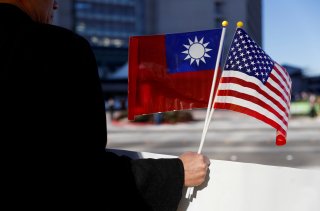The Strategic Dilemma of Taiwan’s Democracy
Taiwan’s democratization arguably created a paradoxical dilemma for U.S. policy: Washington fully supports democracy on the island but cannot support Taiwan’s independence—unless it is prepared to risk its relationship with Beijing.
The CSIS task force report also concluded that “Beijing has the burden to convince the people of Taiwan of its peaceful intentions.” But Taipei and Washington similarly have the burden of convincing Beijing of their intention to remain within a “one China” framework, however that is defined. It is unfortunate that there are voices in Taipei and Washington advocating abandonment of that framework is not encouraging. If those voices prevail, then all bets are off.
For its part, Taiwan cannot assume that its democracy guarantees either its security or its sovereignty. And U.S. support for that democracy cannot be a blank check. Washington’s “dual deterrence” is aimed at cautioning Beijing against a use of force against the island, but also at cautioning Taipei against political actions that might provoke Beijing and are not consistent with U.S. policy—or which take for granted either Washington’s protection or its potential success in a fight to defend Taiwan. Taipei cannot escape the reality and the proximity of China’s power; the diplomatic and material constraints on U.S. power; and the economic interdependence both Taiwan and the United States have with China. It needs to avoid pushing the envelope when the odds and strategic conditions are not in Taipei’s favor.
These strategic circumstances are complicated, messy, and regrettable. If there is good news, it’s that all three sides—Taipei, Washington, and Beijing—presumably realize that they would benefit collectively from a relaxation of tensions and a return to dialogue. Presumably, they are all interested in a peaceful and mutually acceptable resolution to this historical dilemma. Surely there is enough creativity and patience on all sides to leave that possibility open. Those who are impatient on behalf of Taiwan’s democracy should not be allowed to provoke a crisis that would more likely destroy it than preserve it.
Paul Heer is a Distinguished Fellow at the Center for the National Interest. He served as National Intelligence Officer for East Asia from 2007 to 2015. John Culver served in the same position from 2015 to 2018. This op-ed represents their views alone, and not those of the U.S. Government or the U.S. Intelligence Community.
Image: Reuters


